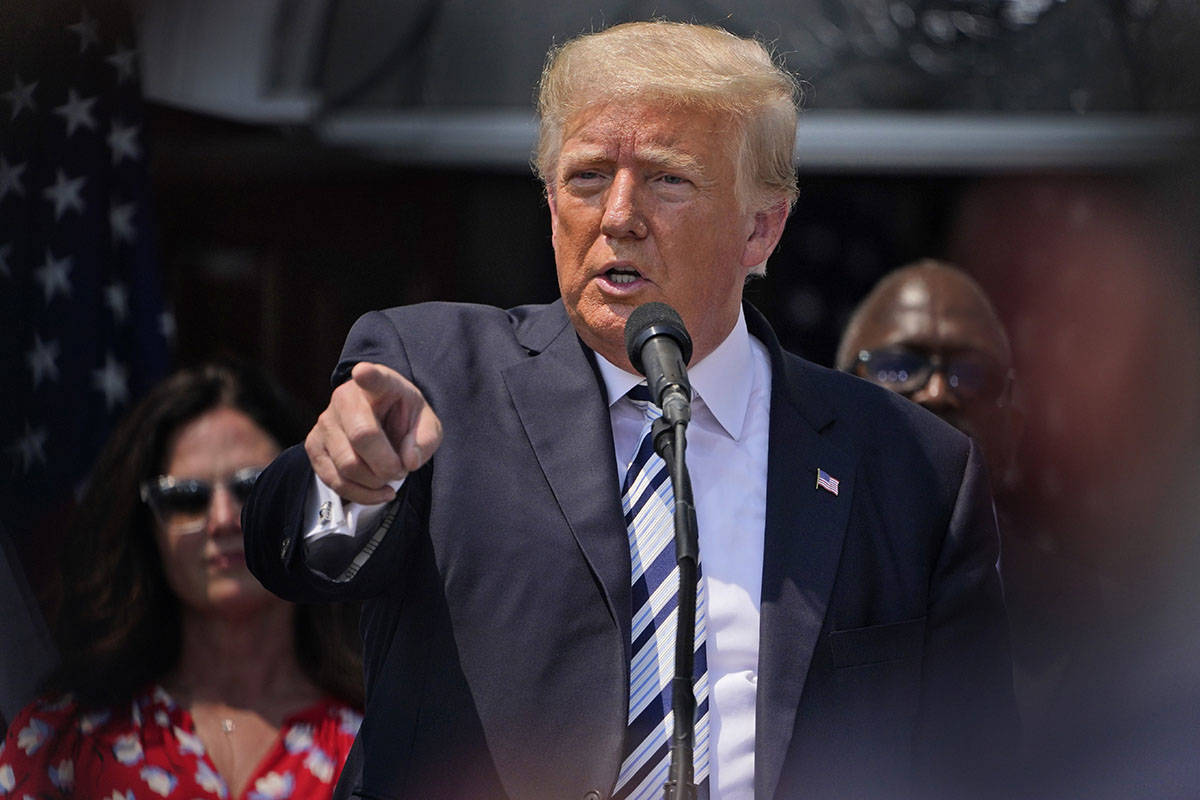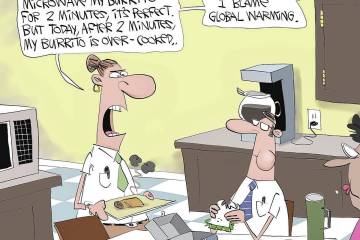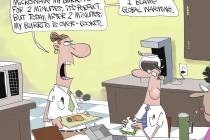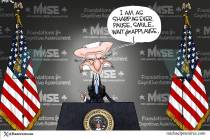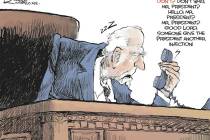CLARENCE PAGE: Donald Trump can’t cram his ‘fake news’ genie back in his bottle
In case you missed it, dear reader, here’s a word from the wise: Don’t eat horse paste.
Unless, of course, you’re a horse.
That tidbit of animal husbandry comes from the federal Food and Drug Administration in a warning to humans who are considering the “horse paste” drug ivermectin, a medicine used to deworm livestock, instead of getting a COVID-19 shot.
“You are not a horse,” the FDA tweeted. “You are not a cow. Seriously, y’all. Stop it.”
That’s right. Stop it. That same day the FDA announced its full U.S. authorization of the Pfizer coronavirus vaccine, removing a leading excuse given by a group commonly known as the “vaccine hesitant.”
That long-awaited good news came a couple of days after another rare development: Donald Trump told an Alabama rally to get vaccinated — and got booed for it.
“You know what? I believe totally in your freedoms,” he said and the crowd applauded. But some of the applause turned to boos when he added, “I recommend: Take the vaccines! I did it — it’s good. Take the vaccines.”
“That’s OK, that’s all right,” he said, reading the somewhat conflicted mood of the still-murmuring crowd. “You got your freedoms. But I happened to take the vaccine.”
Then, with the skills of a seasoned stand-up comedian, he defused the tense moment with a joke: “If it doesn’t work, you’ll be the first to know, OK?”
OK. But that surprising reaction from the MAGA (Make America Great Again) crowd revealed a big reason why Trump has been so reluctant until now to invite his supporters, the most vax-reluctant political group in polls, to get the jab. He doesn’t want to offend his base.
The irony of that fear is how much it has prevented him from doing something he usually loves to do, take credit for stuff. Thanks to his “Operation Warp Speed” project, this country developed the world’s first COVID-19 vaccine and in record time.
Its success would have benefited greatly from his early public endorsement. Instead, it has encouraged some Republican governors, particularly Florida’s Ron DeSantis and Texas’ Greg Abbott, to join the anti-vaxxers’ condemnation of shots and masks as infringements on “freedom.”
Somehow, I find it hard to believe the freedom to risk spreading sickness and death is exactly what this nation’s founders had in mind. But the result has been devastating to thousands of victims of a pseudo-information contagion that the World Health Organization calls an “infodemic,” a confusing tide of false or misleading information through a variety of media during a disease outbreak.
In another tragic irony, three conservative radio hosts who had denounced vaccines on air died in August with COVID-19: Dick Farrel, based in West Palm Beach, Fla., Phil Valentine, of Nashville and Bible prophecy teacher Dr. Jimmy DeYoung, Sr., of Chattanooga, Tenn.
“He is the reason I took the shot,” Amy Leigh Hair, a friend of Farrel’s, wrote on Facebook. “He texted me and told me to ‘Get it!’ He told me this virus is no joke and he said, ‘I wish I had gotten it!’ ”
So do I. His politics were way to the right of my own but no one deserves to be taken in by false COVID-19 information, even if they played a role in spreading it.
But, as Trump may be discovering, once you’ve let that “fake news” genie out of the bottle, it’s impossible to reverse all of the damage it can bring.
Research into the “infodemic” finds what you well might expect. Fueled by confirmation bias, we can be taken in by news that aligns with what we want to hear, even when more reliable sources are telling us what we need to hear.
To push back when an infodemic appears to be taking in your friends or relatives, psychologists tell me it’s often best to connect them to a family doctor, or other knowledgeable figures who already have their trust. It works a lot better than horse paste.
Contact Clarence Page at cpage@chicagotribune.com.



